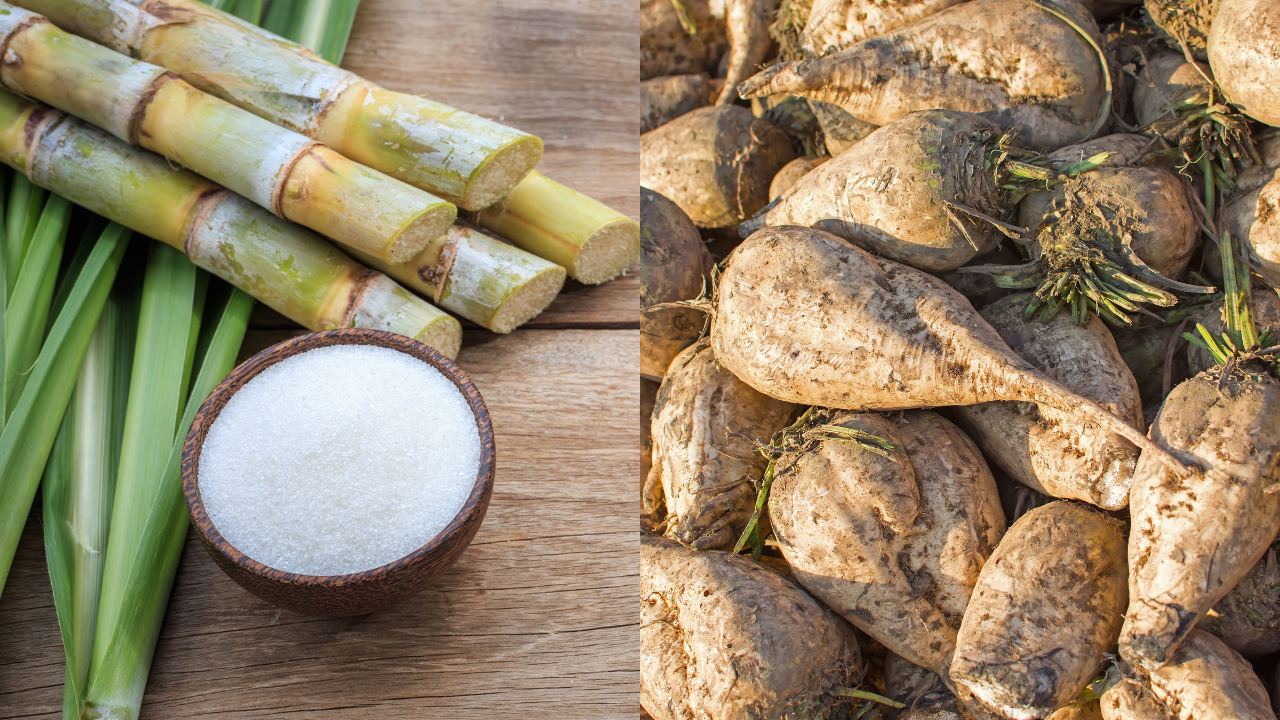A Thorough Look at the Perks and Uses of Beet Sugar Vs Cane Sugar for Sweetening Options
In the realm of sweetening, both beet sugar and cane sugar offer unique benefits and culinary functions, albeit with similar nutritional profiles. While beet sugar boasts a neutral flavor suitable for different recipes, cane sugar improves dishes with refined sugar touches.
Beginnings and Handling Approaches of Beet Sugar and Cane Sugar
Beet sugar and cane sugar, 2 predominant sweeteners, stem from extremely unique plants and undergo different handling techniques. Beet sugar is drawn out from the sugar beet, a root veggie, mostly grown in cooler environments.
Conversely, cane sugar comes from the sugarcane plant, an exotic grass. Its handling begins with collecting the cane, crushing it to get the juice, and after that boiling this fluid to create sugar crystals.
Nutritional Contrast: Beet Sugar Versus Cane Sugar

When comparing the dietary material of beet sugar and cane sugar, it ends up being apparent that both types supply a similar power value. Both beet and cane sugar are 99.9% pure sucrose, making them basically similar in terms of calorie content and dietary account.
Nonetheless, minor differences may emerge from the marginal trace aspects that remain after handling, though these are also minor to effect general wellness. As an example, cane sugar can maintain traces of molasses, depending upon the degree of refining, which might add small quantities of calcium, iron, and potassium. Beet sugar, on the other hand, typically undergoes a procedure that eliminates these trace aspects more extensively, resulting in an even purer kind of sucrose.
Culinary Makes Use Of and Taste Profiles
Despite their nutritional resemblances, beet sugar and cane sugar split notably in their cooking applications and flavor nuances. Beet sugar, obtained from sugar beetroots, commonly has a really neutral preference, making it a recommended choice in cooking where it flawlessly integrates without modifying the flavor account of various other components.
Chefs and home chefs alike choose sugars based you can look here on these features. While both sugars operate likewise in regards to sweet taste and physical residential or commercial properties, the slight flavor distinction can affect the result of a dish significantly, leading the selection between beet and cane published here sugar based upon the desired outcome in culinary creations.
Health And Wellness Implications of Consuming Beet and Cane Sugars
Although beet sugar and cane sugar are typically used mutually in food preparation and cooking, their wellness implications can differ subtly as a result of their distinctive processing methods. Both sugars provide concerning the very same amount of calories and carbs per teaspoon, basically using comparable power contributions with no inherent dietary advantages. Nevertheless, the refining process for each and every sugar can alter the visibility of trace minerals and substances, although these variants are usually minimal and not significant sufficient to impact one's health and wellness meaningfully.
The key health and wellness worry about both kinds of sugar refer to website here their payment to extreme calorie consumption, possibly bring about weight gain, and connected conditions like type 2 diabetes mellitus and heart problem when eaten in big amounts. Therefore, despite the resource, moderation is type in eating beet or cane sugars. Wellness experts typically recommend limiting sugarcoated in any type of kind to preserve optimum health results.
Ecological Effect and Sustainability of Sugar Manufacturing

On the other hand, sugar beet processing tends to generate huge quantities of pulp waste, which can be repurposed as animal feed or exchanged bioenergy, therefore minimizing some ecological impacts (beet sugar vs cane sugar). Ultimately, the sustainability of sugar manufacturing rests on adopting more eco-friendly farming strategies and waste administration methods to lower the environmental impact of both sugar types

Final Thought
Beet sugar is notable for its sustainability and neutral preference, whereas cane sugar is prized for its rich taste. Consumers must consider these aspects, along with the ecological implications of sugar production, to make enlightened options concerning sugar consumption that line up with cooking needs and moral values.